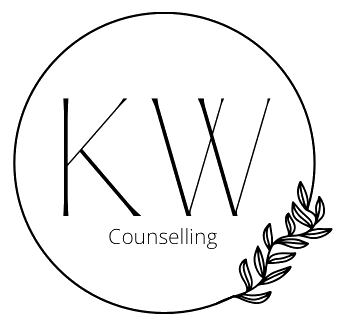If you’re exploring ways to manage your stress, you may have come across the term “intentional living.” What does it mean, and how can it help lower stress? How do you start living with intention?
What is Intentional Living?
Intentional living involves paying close attention to the choices you make and the things you do, with the goal of bringing them into better alignment with your values and the other things that are important to you. Essentially, it means turning off the autopilot that controls your life and making more deliberate decisions.
What Are the Benefits of Intentional Living?
Intentional living can have significant benefits, including:
Reduced Stress and Anxiety
If you approach intentional living sincerely, you will start to focus on the things that really make a difference to you: the things that fulfill you and make your life worth living, rather than your worries and regrets.
Less Comparison and Reduced Striving to Achieve
Intentional living encourages you to focus on what you already have and what is in front of you. You will spend less time thinking about what you don’t have and how you can get it and more time enjoying the pleasures that surround you. You’ll also have a better sense of what you need more of in your life and how you can make it a bigger part of your daily existence.
Greater Acceptance of Yourself and Your Life
Acceptance in this context doesn’t mean settling; it means understanding that what’s right for others may not be right for you. You have a set of values that you want to live by, priorities that may be different from other people’s priorities, and an identity that is unique to you. Accepting yourself and your life means discovering what these values, priorities, and unique characteristics are so that you can be your best and most authentic self every day.
A Calmer Mind
If you feel like your head is cluttered with unnecessary thoughts, worries about things that may never happen, and details that you will never need, intentional living could clear all that out. This can leave you with a more peaceful headspace while also freeing up room for more creativity, productivity, and calming thoughts.
Reduced Reactivity
Living intentionally gives you perspective on your emotions so that you don’t respond as automatically to events and people in your environment. With the help of regular mindfulness practice, you can train yourself to respond more thoughtfully and purposefully to external triggers and stressors. This can bring about better outcomes for you while reducing your stress.
Identifying Your Values
Living intentionally is easier when your choices and actions line up with your values, but figuring out what your values are is easier said than done. Here are some ideas to get you started:
- Take note of the things that make you feel happy, calm, energized, or purposeful. What is it about those things that are important or valuable to you?
- Reflect on what an ideal day is like for you. What are the things you do? Who do you talk to? What do you experience?
- What activities bring you joy or make you feel fulfilled? Make a list and then try to figure out what these activities have in common.
- Think about moments that were particularly meaningful to you. What made these moments meaningful?
- Recall the worst experiences of your life, the ones that were the most upsetting, unsettling, or unsatisfying. This can be uncomfortable but can also be extremely valuable in identifying the things that are important to you.
- Review decisions you’ve made in the past and think about the values that influenced those decisions. Were there times when you felt conflicted about your decisions because they weren’t aligned with your values? What can those experiences teach you about what your values are?
- Complete a values survey such as the VIA Survey of Character Strengths or the Schwartz Value Survey. These are both scientifically supported ways of measuring values that you can use to explore your values.
Keep a list of your values handy so you can reflect on them and the role they play in your decisions. Leave space for your values to shift over time and for you to discover new values you didn’t know you had!
H2
How to Start Living Intentionally
Living with intention begins with three steps:
- First, recognize and acknowledge that life is largely made up of choices. You may have more constraints for some of your choices, but you can always choose your attitudes and reactions, especially with practice.
- Next, acknowledge the influences of the culture you live in. What is it telling you about the right way to be or the right way to live? Are those influences consistent with your values and the way you want to live?
- Finally, get to know yourself. What are the values you want to emulate? Are your choices lined up with those values? What keeps you focused on living intentionally, and what distracts you?
Keep in mind that learning to live intentionally is a process. You won’t be able to immerse yourself in it all at once. Being patient with yourself and accepting setbacks is part of your growth.
Ways to Be More Intentional
Living intentionally doesn’t happen all at once. Start with small changes and add on over time.
Learn About Mindfulness
Practicing mindfulness can set you on a path to intentional living by encouraging you to slow down and be aware of your thoughts, feelings, and sensations. There are many simple exercises that can show you what mindfulness feels like; once you understand how it works, you can incorporate it into your daily activities.
Eliminate Distractions
We live in a noisy world. Even when we’re in a quiet place, distractions are everywhere. Identify the things that draw your attention away from your tasks. Consider limiting or eliminating those distractions. For example, if you spend a lot of time on social media, think about deleting the apps from your phone or only accessing them occasionally.
Keep a Journal
Journaling is a great way to figure out what’s working in your life and where you could be more intentional. Use a few short prompts such as:
- What did I enjoy most about today?
- Did I have any experiences that were especially meaningful or fulfilling?
- What distractions did I encounter?
Keep the prompts simple so you can maintain the habit of writing in your journal every day.
Set a Morning Intention
Take a few minutes every morning to set an intention for the day. Decide on something you will do, how you will approach the day, or how you will interact with people in your life. At the end of the day, reflect on that intention and how well you did. If you didn’t meet your intention, reflect on why and try again the next day.
Create a Vision Board
A vision board helps you make your intentions and goals more tangible. Picture the life you want to have and assemble images, quotes, phrases, and symbols that are relevant to that ideal life. Putting a vision board together will help you clarify your goals and values while reflecting on it every day can help to align your thoughts, beliefs, and actions with your desired outcomes.
Conclusion
Once you start living with intention, you’ll find that your life naturally evolves to help you be increasingly intentional. You will still need to work at it, but it will start making more sense to you, and you will start meeting yourself where you are rather than pushing yourself towards someone else’s goals and standards.
If you’re having trouble bringing your life into alignment with your values and other things that are important to you, think about whether counselling might be helpful. Talking to a counsellor can give you an impartial sounding board where you can express whatever you want to.
If counselling is something you’d like to try, the team at Kari Walton Counselling is here for you. We offer a range of treatment options, including cognitive-behavioural therapy, dialectical behaviour therapy, hypnotherapy, group therapy, and family therapy, to help you sort out what’s getting in the way of you living with intention.
Contact us today to make an appointment. Let’s talk about getting you on a path to the life you want to start living today.

